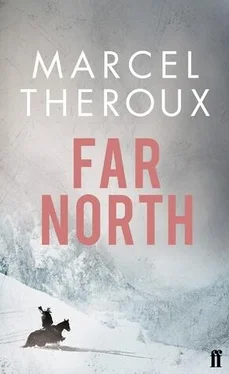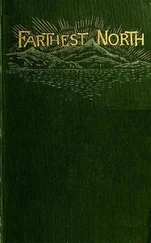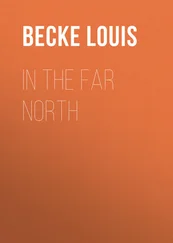The man with the frost-pinched nose set down a battered urn and a dish of hard candy that looked like it was ten years old. The Reverend poured out the tea and passed it around the table.
‘I won’t pretend that these are good times for my flock,’ he said.
‘No,’ I said, ‘but compared to elsewhere, you’re thriving.’ The enamel mug they gave me had been part-cleaned at best, and smelled of caribou stew.
‘Are things bad in Evangeline?’
The men round the table stopped fighting over the candies and waited for me to say something.
‘What things?’ I said. ‘There’s no one there.’ I told him what he pretty nearly must have known himself. The years of calamity and migration as starving people came out of the south. The hungry and the desperate who came to prey on a people gone soft with compassion. I said how we’d belatedly designated a few of us constables and set us to keep the peace, but by then we were overrun. ‘In any case, the townsfolk themselves were among the worst of them. It turns out that goodness only lives when the times permit it.’
‘Well, we allow more hope than that, Mr Makepeace.’
‘Esperanza’s the same,’ I went on. ‘I passed through on my way here. Homerton too, I expect.’
‘If that’s where you’re headed, I can save you a journey. All that you see here is what’s left of the place.’
I told him that I thought the name of this place was Horeb.
‘Or New Homerton, you could call it.’ His grin hadn’t an ounce of humour in it. He rubbed his tired, unslept eyes with one hand as his other reached for a candy.
Looking round at all their dark, smoked-meat faces, I though how much they resembled Tungus. It was as though they’d come here with their European faces as blank as bars of white soap and had new asiatic ones carved out of them by the cold and the wind.
‘What happened to the city?’
Boathwaite shook his head. I felt such a weariness in him. ‘Much like you said. Rather late in the day, we had to adopt a more muscular variant of our beliefs. We had to let go of a lot of things that were precious to us.’
I tried to imagine my father saying it. But to him that would have been total defeat. In his mouth it would have meant: ‘We came here and lost everything.’
‘Things have a life built into them,’ said Boathwaite. ‘You just never expect to be in at the end of anything. You never expect to be among the last.’
Around him, the men nodded, or sucked tea through their candy, rather untroubled, like children whose father was doing their fretting for them.
Boathwaite went on: ‘The great blessing is that as our life becomes harder and simpler, I feel such closeness with my god.’
The round-eyed man sucked up his tea in time to cap the Reverend’s words with an ‘Amen’, which the others followed.
Then the Reverend stood up and told me I was welcome to stay as long as I wanted.
*
I felt light round my hips without my guns, like you do when you take off heavy boots after a long day walking.
They gave me a bed in one of the shacks that belonged to a woman called Violet. She served me a dish of cold potatoes with a bit of fatty meat and watched over me while I ate it. The shack had a funky smell which put me off eating at first, but after a while I got used to it.
I thought it was just the two of us, but a cracked old voice suddenly called out from behind a sheet that cut off one corner of the shack. ‘I’m dying!’ it said.
Violet lifted the sheet and went in behind it. ‘Shut up, mother,’ she said. ‘We’ve got a visitor. A young man.’
Which was wrong on both counts.
I went round the sheet out of politeness. A tiny toothless old woman was sitting up in her sour bed linen. She looked like a bag of sticks. ‘I’m dying!’ she cried out at me.
Violet rolled her eyes at me and let the sheet drop back. ‘Don’t mind her,’ she said.
The bed she gave me was hers — no more than a cot slung just above the floor, and it creaked when I sank into it. Violet got into the bed with her mother, who kept it up all night, moaning and crying out, ‘I’m dying!’
Violet woke me in the middle of the night when she got up to put a log in the stove. The stove door squeaked and the light in the shack sat up a little as the log took. She didn’t shut it immediately, but came and stood over me. I pretended to be asleep. The fire from the stove lit my eyelids orange. I could hear her breath sighing through her nostrils as she stood there a while, gazing down at me.
Then I felt something like a tickle and I realized she was touching my head. It was gentle, but I didn’t feel altogether comfortable with it.
‘What are you doing?’ I said.
She didn’t startle, but kept on. ‘What happened to your face?’ she asked.
‘Someone burned it,’ I said.
‘You poor thing,’ she said. She stroked my head for a bit longer, then she shut the door of the stove and padded back to bed with the old woman.
I never feel sorry for myself, never, but that small tenderness upset me in a way I hadn’t been for a long time, and I was awake for a while, with thoughts of Ping and the baby roiling in my brain, and every hour like a cuckoo clock, the old woman would cry out, ‘I’m dying!’ in her high cracked voice that seemed like it was speaking for all of us.
LOOK AT IT how you like, there was something strange about Horeb and I wasn’t minded to stay, but my horses got colicky in the night and there was no chance of my leaving the next morning, or in the days that followed.
I didn’t much like bunking with Violet and her mother, either. Something about the heat and the feety smell in their hut, and the old woman’s crying, gave me bad dreams.
One night, it was women and babies, tumbling out of one another in an endless squalling chain of red bodies, all linked up with their belly cords, like one of those families you might snip out of paper, but this one went on for ever, and the babies were women themselves, with babies of their own, so that if you stretched it all out, it would reach back to Creation, and the first woman, with her pinched monkey face, who ever walked upright.
You never expect to be in at the end of anything . That was what Boathwaite had said.
Ping’s child had been a girl, too. Choked with her own belly cord as she lay wrong-side up in her mother’s womb.
So that line perished with her. And as for my line, I was the last of it, and there would be no slippery little women dropping out of me.
*
I thought life back home was hardscrabble, but Horeb was even worse, grubbing in the woods for ferns and burdock, thin watery soups at mealtimes, and meat at most twice a week. The only thing they got to fill up on was religion. They had big helpings of church three times a day. Morning, lunchtime, and evening, they would troop into that building and have Boathwaite read or preach at them for up to an hour. It struck me early on that if they prayed less, they’d eat better, but as a guest, I felt bound to keep my thoughts to myself.
From the second day, I decided I’d give the sermons a miss and went off to the woods for a scout around. I’d not gone further than five hundred yards from the stockade when I came upon half a dozen wild caribou nosing through the forest, scratching up lichen to feed on. Boathwaite still had my guns, so there was nothing I could do but watch. It was too much for me to take. All those fools sat in church with their bellies grumbling, and here there was breakfast, lunch, and dinner, wandering about on four legs, just daring you to put it in your mouth.
I ran back to the stockade. There was one man on guard at all times and he let me in. I went straight to the little chapel and burst in, breathless. I begged them to excuse my interruption, I told them about the caribou, and I said that if the Reverend would be willing to return one of my firearms, I’d put more than enough meat on the table to repay their hospitality to me.
Читать дальше












